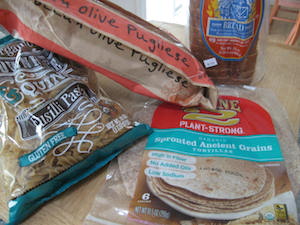
by plant4health | Mar 31, 2015 | Nutrition, Plant-based, Recipes, Vegan, WFPB, Whole food

Gluten-free has become a trendy buzzword among the health conscious. But is it right for everyone, even if you aren’t experiencing symptoms of having a gluten sensitivity?
What is gluten?
Gluten is a protein that naturally exists in wheat, rye, and barley and can be found in a variety of processed foods, including salad dressings and seasoning mixes. Gluten is also hiding in some vitamins, medications and makeup products. Gluten’s main claim to fame is its ability to help foods maintain its shape. That’s why it’s an essential part of baking. When combined with water, gluten’s strong, sticky protein gives structure to baked goods and pastas.
Gluten has become a popular meat substitute for vegans and vegetarians. High in protein, a four-ounce serving of seitan (a processed gluten meat substitute) contains about 26 grams of protein. Gluten is also low in fat and high in iron.(1)
When is gluten bad?
Gluten is harmful to people with celiac disease or a gluten sensitivity. When people with celiac disease (an autoimmune disorder) eat gluten it triggers an allergic reaction that results in inflammation and destruction to the lining of their small intestine and the malabsorption of nutrients. People with celiac disease tend to experience varying degrees of gastrointestinal issues, joint pain and skin rashes. In addition, studies have shown a link between celiac disease and neurological symptoms such as anxiety, depression, autism, epilepsy, and schizophrenia.(2) And there is strong evidence that individuals with autism, epilepsy, and schizophrenia all respond well to a gluten-free diet.(3) It only takes a very small amount of gluten (about 50 milligrams) to cause intestinal damage for a person with celiac disease. Learn more.
A related condition called gluten sensitivity or non-celiac gluten sensitivity can cause symptoms similar to celiac disease with an increase in the non-GI symptoms such as headaches, joint pain and numbness in the limbs and fingers. Individuals with gluten sensitivity lack the same antibodies as those with celiac disease and do not experience the same intestinal damage. Where celiac disease is considered an autoimmune disease, gluten sensitivity is an innate immune response where the immune system’s response does not target your own body’s tissues. (more…)
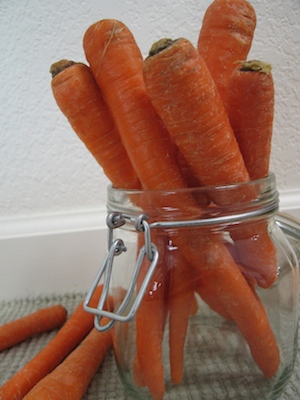
by plant4health | Mar 24, 2015 | Plant-based, Recipes, Vegan, WFPB, Whole food
 The nutritional power of everyday foods always amazes me. Perhaps because they are so readily available we overlook their healing capacity.
The nutritional power of everyday foods always amazes me. Perhaps because they are so readily available we overlook their healing capacity.
A common dipping tool for hummus and guacamole, a popular addition to salads and stews, the healing potential of carrots tends to be dismissed. In addition to containing many alkaline elements that assist your body in maintaining the acid-alkaline balance that is essential for optimal health, carrots have more than 490 phytochemicals. Each phytochemical provides different health benefits; some assist in detoxifying your body, others stimulate the immune system, modulate metabolism, and/or have antibacterial and antiviral qualities.
We all know about how the high amounts of the carotenoid beta-carotene found in carrots (that converts into vitamin A in our bodies) supports healthy vision, skin, and bones, but did you know that carrots are a great source of disease fighting flavonoids? These flavonoids provide antioxidants that work towards neutralizing free radicals that attack the cells of your body, protecting them from forming cancer cells, causing premature aging, and taxing your immune system.
Did you know that carrot juice is an effective diuretic? The combination of vitamins, minerals and antioxidants found in carrots promote detoxification and the elimination of excess water from your body.
But that’s not all. Below is a list of nutrients found in carrots. Raw or cooked, this vegetable holds a powerhouse of healing potential:  Below are some of the ways these nutrients play a vital role in your health, reducing your risk of chronic disease and cancer.
Below are some of the ways these nutrients play a vital role in your health, reducing your risk of chronic disease and cancer.
Heart Disease
The British Journal of Nutrition (Nov 2011) reported that consuming deep orange fruit and vegetables, especially carrots, may provide you with a 32% lower risk of coronary heart disease.
In addition, the antioxidants found in carrots work together synergistically to provide cardiovascular protective benefits. It is believed that obtaining any of these antioxidants in isolation from each other would not create the same effect. It is the nutrition from the whole food that provides the full health benefits.
The calcium found in carrots helps prevent the narrowing of blood vessels, the potassium promotes regular heartbeat, and the vitamin C protects cells against free radicals and strengthens blood vessel walls. Learn more here and here.
Cancer
Antioxidants in carrots, including vitamin C and beta-carotene, are known to play a significant role in cancer prevention; In 1986, a case-control study on the effect carrots and green vegetables have on lung cancer found that smokers who ate carrots more than once a week had a lower risk of lung cancer.
In 2011, a study investigated the effect of carrot juice extracts on leukemia and found evidence that carrot juice extract kills leukemia cells and inhibits their progression, making carrots an excellent source of bioactive chemicals to treat leukemia.
Fertility
According to the Harvard University School of Public Health (November 2013), eating foods rich in beta-carotene, like carrots, can boost male fertility, improving sperm motility by 6.5 – 8%.
Tips
Carrots are available in the grocery stores year-round. If you purchase your carrots at a farmers market with the greens attached, remove them before storing to prevent the greens from drawing out moisture and nutrients from the roots.
There are so many uses for carrots: shred them in salad and coleslaw, add them to wraps, steam or roast them for dinner, include them in muffins or cake to add a touch of sweetness, or juice them into a nutrient rich veggie drink.
Try one of these recipes:

by plant4health | Mar 17, 2015 | grocery shopping, Nutrition, Plant-based, Recipes, Vegan, WFPB, Whole food
 It seems counter-intuitive that eating a healthy plant-based diet costs more then an unhealthy diet full of processed foods. Although cheaper in the short run, the cost savings of eating an unhealthy western American diet is countered as you age with the increase in health costs due to diabetes, heart disease, strokes, autoimmune diseases, and other chronic illnesses.
It seems counter-intuitive that eating a healthy plant-based diet costs more then an unhealthy diet full of processed foods. Although cheaper in the short run, the cost savings of eating an unhealthy western American diet is countered as you age with the increase in health costs due to diabetes, heart disease, strokes, autoimmune diseases, and other chronic illnesses.
But the immediate increase in costs of healthy organic foods can shock the pocketbook, making it a challenge for those living on a tight budget. When given the choice between a cheap, quick, heat and serve processed meal or a slightly more expensive, healthy, make it yourself meal that takes conscious effort, the cheap quick and easy usually wins out.
The good news is eating a plant-based vegan diet doesn’t have to break the bank. According to a study completed at the Harvard School of Public Health in 2013, it only costs about $1.50 more per person per day to eat healthy. It just takes a little strategy to shift your food choices and purchasing habits in order to keep the costs down. Here are some suggestions to help you save money: (more…)
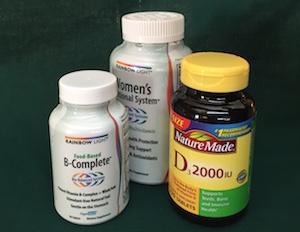
by plant4health | Mar 13, 2015 | Nutrition, Plant-based, Vegan, WFPB, Whole food, Whole food, plant-based
The vitamin supplement industry is a multibillion market – that’s billion, not million! Yet, according to Dr. T. Colin Campbell, “vitamin supplements are not a panacea for good health.” A whole food, plant-based (WFPB) diet plus adequate sunlight provides all the vitamins and minerals humans need with the exception of Vitamin B12 – which we’ll explore in this post. However, there are certainly cases where supplements are essential in the short term if you have a deficiency.
Nutrients in our food do not work in isolation but rather as a symphony. Taking a particular chemical nutrient out of context as a supplement doesn’t work for long-term health. And supplements for a single nutrient don’t always work the way the same nutrient present in natural foods do.
Beta Carotene & Vitamin E:
For example, there was a study in Finland where researchers followed cigarette smokers for 8 years. One group took supplements of alpha-tocopherol, a form of Vitamin E, another beta-carotene, another both supplements and another a placebo. The results were surprising. The group that took supplements had an increased lung cancer rate, while those on the placebo had a decreased lung cancer rate. Numerous other studies have found that supplements for Vitamins A & C, folic acid or antioxidants do not impact chronic diseases such as heart disease and cancer. (more…)
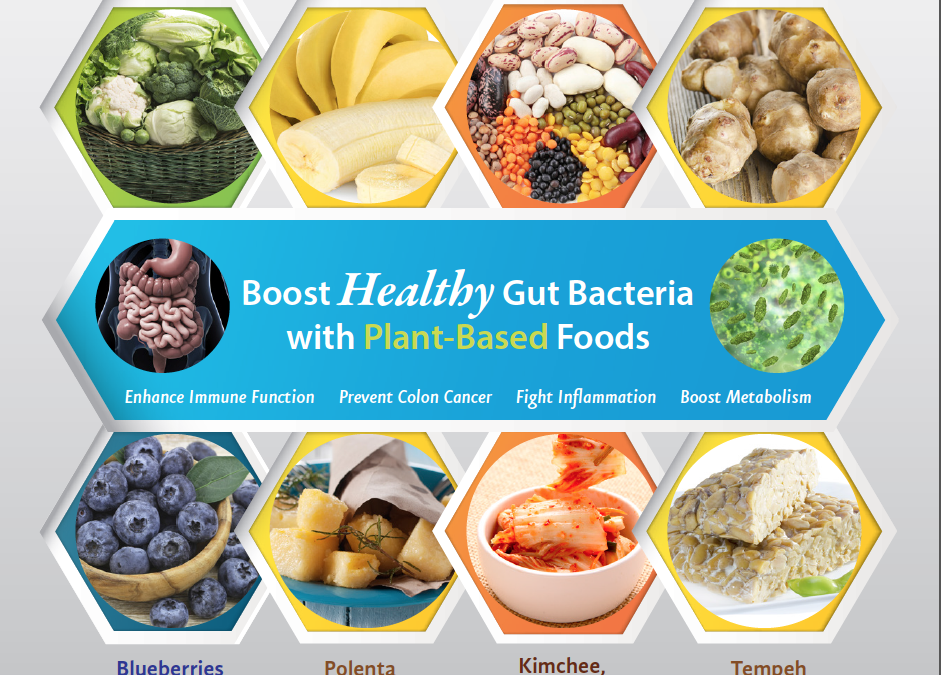
by plant4health | Mar 10, 2015 | Nutrition, Plant-based, Vegan, WFPB, Whole food, Whole food, plant-based
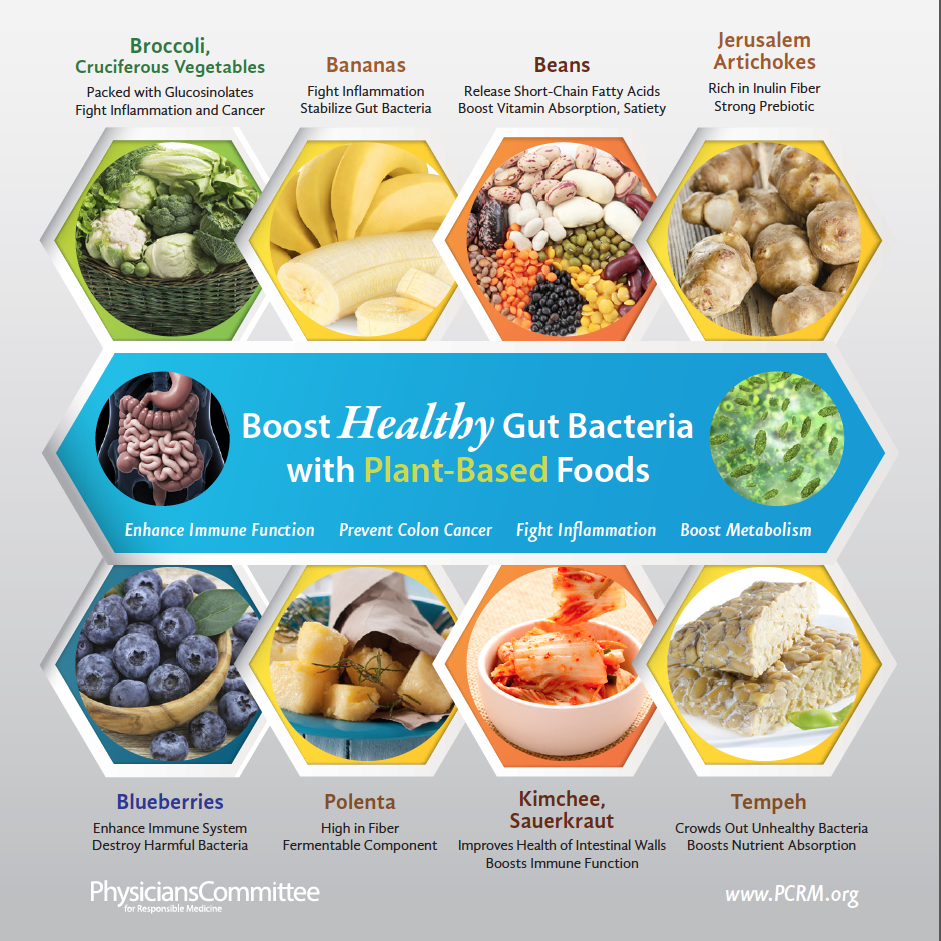
PCRM’s Infographic “Boost Healthy Gut Bacteria with Plant-Based Foods” www.pcrm.org
Your digestive system plays a crucial role in your healing process. This complex series of organs and glands break down the food you eat into nutrients that your body can absorb, using them to provide energy, heal and fight off disease. It then releases the toxic waste your body doesn’t need. As a result, it is essential for those with chronic illness and disease to pay close attention to their digestive health as a part of their healing process.
The foods you eat, your stress level and overall health all play a role in the effectiveness and health of your digestive system. This has been known since ancient times. The two oldest systems of medicine, traditional Chinese and Ayurveda, both focus on digestion as one of the key factors that influence heath, directing their healing efforts on the link between a person’s digestive system and their mental and physical well-being.
The biggest factors that contribute to poor digestion are:
- Chronic stress
- Diets low in fiber and high in processed foods, wheat, simple carbohydrates and sugars
- Chronic infections
- Antibiotics
- Non-steroidal anti-inflammatories (NSAIDs)
- Overuse of acid blockers (Prilosec, Nexium, etc)
- Low grade food allergies (dairy, eggs, corn)
Signs that your digestive system is out of balance:
- Gas
- Bloating
- Headache
- Burping
- Reflux
- Neck, shoulder, mid/lower back pain
- Fatigue following a meal
- Abdominal distention
- Constant hunger
- Bowel irregularity
Fortunately, there are several things you can do to bring your digestive system back into balance:
- Improve your gut flora: Your gut flora is made up of microorganisms that live in the digestive tracts and help your body digest and absorb nutrients and fight against intruders. Healthy flora is critical for whole body health. Your body cultivates new flora every 24 hours through the foods you eat. This healthy bacteria that lives in your intestinal tract thrives on colorful, plant-based foods such as cruciferous vegetables, bananas, beans, Jerusalem artichokes, blueberries, polenta, kimchee & sauerkraut and tempeh. PCRM has created a wonderful infographic that shows the properties of these foods that support healthy digestion titled Boost Healthy Gut Bacteria with Plant Based Foods. Learn more about how to restore your gut flora.
- Eat plenty of fiber – Fiber is important in maintaining regular bowel movements so toxins don’t build up and become reabsorbed into your body. Fiber is found in vegetables, fruits, grains and legumes. There are two kinds of fiber: Soluble fiber (i.e oatmeal, nuts, beans, apples and blueberries) slows down digestion as it breaks down into a gel in your intestines Insoluble fiber (i.e. seeds, grains, stringy parts or skins of plant matter) speeds up digestion as it passes through the body mostly intact . It is important to have both types of fiber in your diet.
- Drink plenty of water – water helps your body flush out toxins through your digestive system and softens stools. Fiber, like a sponge, absorbs water. A high fiber diet without enough fluid intake will cause constipation, resulting in the malabsorption of nutrients and the reabsorption of toxic waste that was delayed in being removed from the body.
- Manage your stress – when under stress, your body experiences the “flight or fight” response causing your central nervous system to shut down blood flow, this affects the contractions of your digestive muscles and decreases secretions needed for digestion. Stress can also result in inflammation of the gastrointestinal system. Some useful tools for distressing are: exercise, yoga, meditation, visualizations, deep breathing, spending time with friends or family, laughter, or communing with nature. Find what works for you. It can be as simple of learning to give yourself a “time out” when feeling overwhelmed to scheduling “me” time everyday to enjoy an activity you love. Learn more about stress and digestion.
- Exercise regularly – Aerobic exercise increases your breathing and heart rate, helping to stimulate the natural contraction of intestinal muscles. This doesn’t mean you should perform aerobic exercise after a large meal. Because digestion requires a large amount of blood flow, strenuous exercise right after a meal will stop digestion by redirecting the blood flow to support the increased need for physical activity. Instead, consider enjoying a slow leisurely walk which can actually stimulate digestion and relieve bloating.
- Take time to enjoy the your meal – When you eat too quickly your food is not broken down as well by chewing and the acid-neutralizing saliva that helps the food pass into your stomach is significantly diminished. This creates the perfect environment for heartburn and indigestion. Lingering over a meal with friends and family, chewing carefully and eating mindfully are important steps in creating healthy digestion.
- Sip on ginger tea. Ginger’s ability to relax the intestine muscles has made it a popular cure for stomach issues. However, it does so much more. According to the Chopra Addiction and Wellness Center, “a recent study in the European Journal of Gastroenterology and Hepatology found that ginger stimulates digestion by speeding up the movement of food from the stomach into the small intestine, and helps eliminates digestive discomfort after eating. In addition, ginger can stimulate saliva, bile, and gastric enzymes to aid in digestion of the food that has been ingested. “ They suggest drinking ginger tea regularly throughout the day by adding one teaspoon of grated or sliced fresh ginger root to a cup of hot water.
If you want to learn more, check out these articles:
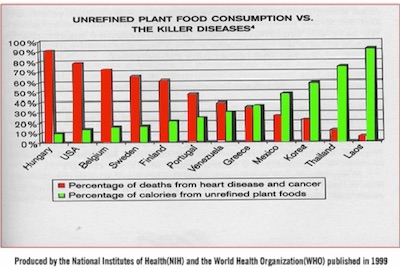
by plant4health | Mar 6, 2015 | Nutrition, Plant-based, Vegan, WFPB, Whole food, Whole food, plant-based
Doug Lisle, Ph.D. is a psychologist and co-author of The Pleasure Trap – Mastering the Hidden Force that Undermines Health and Happiness along with Alan Goldhamer. I had the “pleasure” of listening to a lecture by Dr. Lisle as part of the coursework I am taking to earn a certification in plant-based nutrition through Cornell’s online university, eCornell. Here are the key take-aways of Dr. Lisle’s lecture.
Most of us have been educated and quite frankly bombarded with messages about how to live a healthy lifestyle. When it comes to diet we know that eating more fruits and veggies is good and that we should avoid highly processed foods, sugar, the wrong kinds of fats, etc. Even though we know this information and may have a strong desire to follow a healthy diet, we find ourselves eating or drinking the wrong foods and beverages. Why is that?
(more…)








